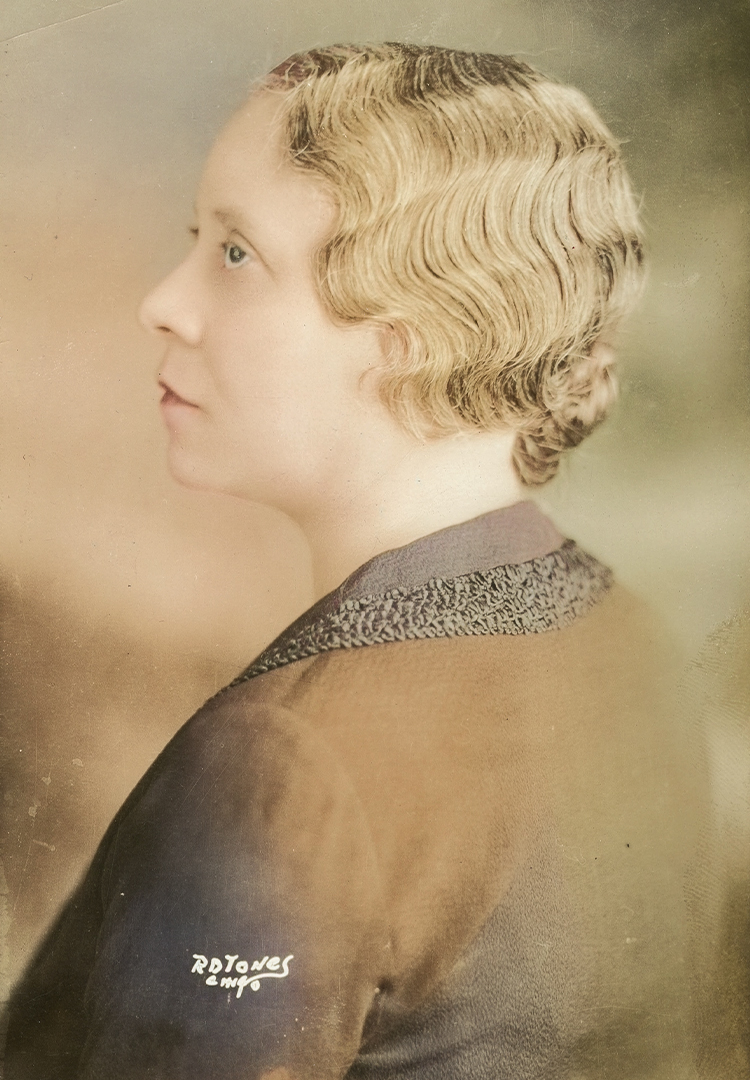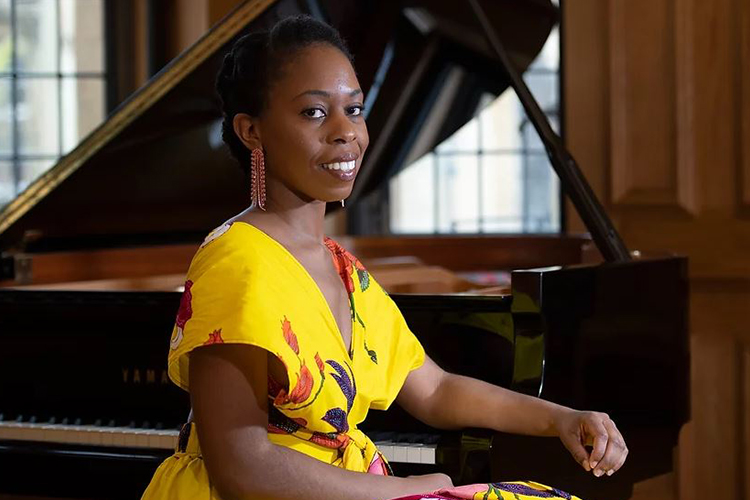
Florence Price
(1887 – 1953)
Florence Price was a composer whose success transcended barriers and facilitated greater opportunities for Black female musicians. She was born on April 9, 1887, in Little Rock, Arkansas. Price began learning piano at an early age from her mother, and through these lessons she discovered her talent for performing and composing music. From 1903 to 1906, she utilized these skills to study organ performance and piano pedagogy at the New England Conservatory of Music in Boston. Afterwards, Price started teaching, married, had two children, and settled into balancing her career and family life in Little Rock. Unfortunately, as discriminating policies and violence against Black citizens rose, Price’s hometown became increasingly dangerous. As a result, between 1927 and 1928 Price and her family moved to Chicago, Illinois to find new opportunities.
In Chicago, Price entered the creative atmosphere of the Black Chicago Renaissance. She joined organizations like the National Association of Negro Musicians (NANM) and met artists and leaders who helped shape her career. In 1932, Price won the Wanamaker competition with her Symphony No. 1 in E Minor. This achievement not only honored Price’s work— it also enabled a historic event. On June 15, 1933, conductor Frederick Stock and the Chicago Symphony Orchestra premiered Symphony No. 1 at the Chicago World’s Fair. As a result, Price became the first African American woman to have a major orchestra perform a large-scale composition.
She further disrupted boundaries as the first Black woman to join the Musicians’ Club of Women, the Illinois Federation of Music Clubs, and the Chicago Club of Women Organists. Price also fostered relationships with Black female musicians to support one another’s careers. On October 12, 1934, Margaret Bonds was the soloist in Price’s Piano Concerto in One Movement with the Woman’s Symphony Orchestra of Chicago. In Marian Anderson’s Lincoln Memorial concert on April 9, 1939, she ended her performance with Price’s arrangement of “My Soul’s Been Anchored in the Lord.” Through her compositions, Price integrated Black musical idioms into Western art music to celebrate Black musical heritage. She remained an active composer until her death on June 3, 1953.

Elizabeth Durrant
Elizabeth Durrant recently received an M.A. in Musicology from the University of North Texas. She also earned a B.A. in English Literature (St. Mary’s College of Maryland) and a B.S. in Voice (Towson University)—as a result she is dedicated to exploring intersections between these disciplines. Her master’s thesis is titled “Chicago Renaissance Women: Black Feminism in the Careers and Songs of Florence Price and Margaret Bonds.” Elizabeth plans to pursue her PhD in musicology and continue exploring her interests in Black and female composers, twentieth-century neoromantic music, and American art song.
Sources
Brown, Rae Linda. The Heart of a Woman: The Life and Music of Florence B. Price, edited by Guthrie P. Ramsey, Jr. Champaign, Illinois: University of Illinois Press, 2020.
———. “Lifting the Veil: The Symphonies of Florence B. Price.” In Florence Price Symphonies Nos. 1 and 3. American Musicological Society Recent Researches in American Music Vol 66, edited by Rae Linda Brown and Wayne Shirley, xv-lii. Middleton, WI: A-R Editions, 2008.
———. “Price [Smith], Florence Bea(trice).” Oxford Music Online. Last modified on March 3, 2020. https://doi.org/10.1093/gmo/9781561592630.article.48286.
Friedberg, Ruth C. “Price, Florence B.” In Harlem Renaissance Lives from the African American National Biography, edited by Henry Louis Gates, Jr. and Evelyn Brooks Higginbotham, 409-410. New York: Oxford University Press, 2009.
Southern, Eileen. Biographical Dictionary of Afro-American and African Musicians. Westport, Connecticut: Greenwood Press, 1982.
Susan Stamberg, “Denied a Stage, She Sang for a Nation,” NPR. April 9, 2014, https://www.npr.org/2014/04/09/298760473/denied-a-stage-she-sang-for-a-nation.




